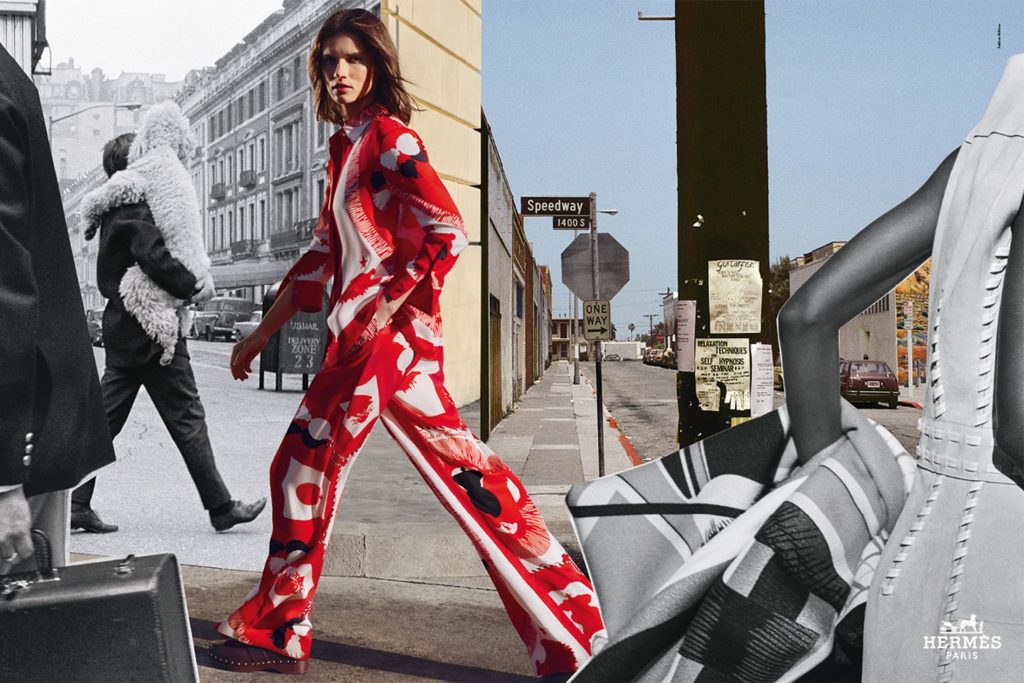The fashion industry is obsessed with going “green.” From fast fashion companies like Zara – which recently revealed “an ambitious plan” to transition to entirely sustainable fabrics and recycling – to the biggest luxury brands and indie fashion labels, alike, that are taking turns proclaiming their “ethical fashion” initiatives, it is becoming increasingly difficult to find a brand that is not incorporating some kind of sustainability efforts into its operations. Such a boom in eco-centric endeavors is making it increasingly difficult to distinguish between and prioritize initiatives. That is largely because the terminology being used is – more often than not – extremely vague.
As the Environmental Law Institute noted recently, the term “sustainability” was “first “introduced in environmental policy discourse over 30 years ago,” when the World Commission on Environment and Development published Our Common Future. In addition to charting a path for future development, the lengthy report – which was released in conjunction with the United Nations in 1987 – is recognized as adopting a definition of “sustainability” that identifies the term as “development that meets the needs of the present without compromising the ability of future generations to meet their own needs.”
Our Common Future created what is largely considered to be the first definition of the term “sustainability.” However, as the leaders of the Environmental Law Institute state, sustainability, as a term and as a practice, still “suffers from ambiguity that must be overcome if governmental and private-sector decision-makers are to optimize the concept’s potential.” In other words: “sustainability,” along with other terms – such as “green,” “eco-friendly,” “ethical,” “responsibly-made,” and in many cases, even “upcycled” – lack concrete, uniform definitions with foundations in law that consumers can observe and against which brands can be held accountable.
Unlike “organic,” for instance, which comes with a certification process for producers of food and other agricultural products, as overseen by the U.S. Department of Agriculture, sustainability-centric terminology (and any corresponding definition) comes with no such government-mandated guidelines. In fact, when the Federal Trade Commission (“FTC”) released its final version of the Guides for the Use of Environmental Marketing Claims in 2012, following about five years of review, it was widely recognized that the government agency did not set out many specific definitions.
Chris Cole, a partner in Manatt Phelps & Phillips’ Washington office, asserted at the time that the FTC “somewhat sheepishly admitted that it could not define what sustainability really means in concrete terms for marketers” by way of its “Green Guides.” Instead, the FTC’s lengthy Guides provide information to enable marketers to make common environmental marketing claims without deceiving consumers. For instance, the FTC’s Guides mandate that marketers must “not make unqualified general environmental benefit claims because ‘’it is highly unlikely that marketers can substantiate all reasonable interpretations of these claims.’”
Moreover, the FTC asserts that while “marketers may be able to qualify general environmental benefit claims to focus consumers on the specific environmental benefits that they can substantiate,” they should use “clear and prominent qualifying language to convey that a general environmental claim refers only to a specific and limited environmental benefit(s).”
The exceptions? The FTC’s 300-plus page Guides assert that labeling a product as “green” because it is made with recycled content could be deceptive if the environmental costs of creating and using the recycled material exceed the benefits of using it. In terms of labeling a product as “biodegradable,” the FTC states that the product it must “completely break down and return to nature” within one year for such a term to apply.
Even with the FTC’s guides in mind, the vast majority of the buzzy marketing terminology that brands use is just that: buzzy marketing terminology – as opposed to consisting of objectively discernible or quantifiable terms. Such loosely defined concepts remain open to interpretation by brands and consumers, alike, which is a large part of why brands like H&M are not being hauled into court for false advertising when they advertise their “sustainable” garments and report “strong progress towards sustainability,” all while simultaneously making headlines tied to supply chain abuses and the large-scale destruction of unsold – but recyclable – products.
In much the same way as Sujith Surendran and Dr. Tabrez Ahmad argue that we are in need of a legal definition for “sustainable energy” in order to “streamline all activities aimed at a sustainable future” and “to bring various energy policies for the litmus test of sustainability,” the same can be said for fashion, and not just for the purpose of actually achieving measurable progress but for the benefit of consumers in the market for products that actually have a positive environmental impact and not merely advertising ploys.











